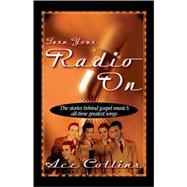
Note: Supplemental materials are not guaranteed with Rental or Used book purchases.
Purchase Benefits
What is included with this book?
| Contents | |
| Introduction | |
| Amazing Grace | |
| Battle Hymn of the Republic | |
| Because He Lives | |
| Beyond the Sunset | |
| Can the Circle Be Unbroken? | |
| Child of the King | |
| Clinging to a Saving Hand | |
| Crying in the Chapel | |
| Everybody Will Be Happy | |
| Farther Along | |
| Give the World a Smile | |
| Glory Train | |
| The Gospel Ship | |
| The Great Speckled Bird | |
| Happy Rhythm | |
| Heaven Came Down | |
| He Keeps Me Singing | |
| He Knows Just What I Need | |
| He Looked Beyond My Fault and Saw My Need | |
| He Touched Me | |
| His Eye Is on the Sparrow | |
| His Hand in Mine | |
| How Great Thou Art | |
| I’d Rather Have Jesus | |
| If That Isn’t Love | |
| If We Never Meet Again | |
| I Know Who Holds Tomorrow | |
| I’ll Fly Away | |
| In the Garden | |
| I Saw the Light | |
| It Is No Secret | |
| I Wouldn’t Take Nothing for My Journey Now | |
| Jesus Loves Me | |
| Just a Closer Walk With Thee | |
| Just a Little Talk With Jesus | |
| Keep on the Sunny Side of Life | |
| The King Is Coming | |
| Life’s Railway to Heaven | |
| Mansion Over the Hilltop | |
| Milky White Way | |
| My Tribute | |
| O Happy Day | |
| Peace in the Valley | |
| Precious Lord, Take My Hand | |
| Satisfied | |
| Stand by Me | |
| Supper Time | |
| The Sweetest Song I Know | |
| Thanks to Calvary | |
| This Ole House | |
| This World Is Not My Home | |
| Through It All | |
| Turn Your Radio On | |
| The Unclouded Day | |
| Until Then | |
| Victory in Jesus | |
| Walk Dem Golden Stairs | |
| We’ll Soon Be Done With Troubles and Trials | |
| Were You There? | |
| When God Dips His Love in My Heart | |
| When the Morning Comes | |
| Where No One Stands Alone | |
| Who Am I? | |
| Without Him |
The New copy of this book will include any supplemental materials advertised. Please check the title of the book to determine if it should include any access cards, study guides, lab manuals, CDs, etc.
The Used, Rental and eBook copies of this book are not guaranteed to include any supplemental materials. Typically, only the book itself is included. This is true even if the title states it includes any access cards, study guides, lab manuals, CDs, etc.
Excerpted from Turn Your Radio On: The Stories Behind Gospel Music's All-Time Greatest Songs by Ace Collins
All rights reserved by the original copyright owners. Excerpts are provided for display purposes only and may not be reproduced, reprinted or distributed without the written permission of the publisher.